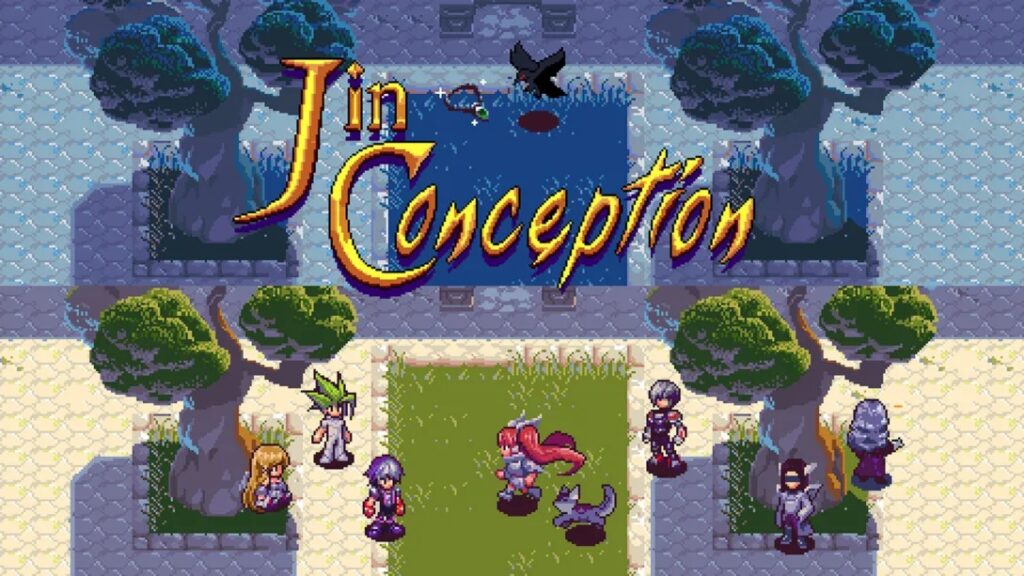
Some of the best games have come out of the melding of multiple genres to create something new. Look at Castlevania: Symphony of the Night, which combined the exploration of Metroid with methodical action of Castlevania. Or Final Fantasy Tactics, combining strategy games with RPGs for an experience which transcended both genres. Recently, we’ve seen concepts like Fortnite combine base building and deathmatch combat to incredibly wild success. In other words, cribbing off of your neighbor is pretty much the foundation of gaming.
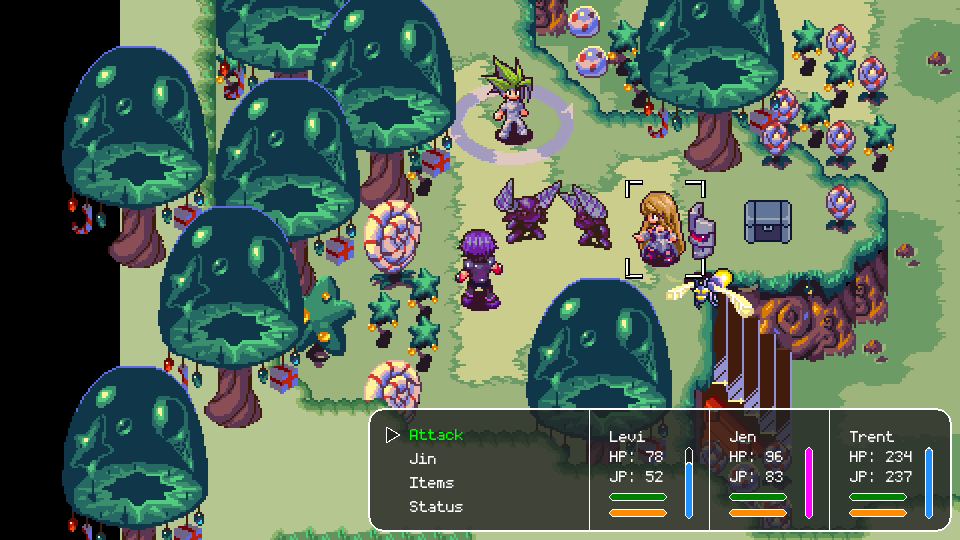
The latest game to give this a go is Jin Conception from Jin Wave Studio, an indie developer. Jin Conception combines classic RPG gameplay with social deduction, a newer concept in gaming most famously used by Among Us. Sus, amirite? Social deduction games are based on board games where one player is secretly the traitor and others have to work with them while guessing who they are. They’ve been around for a while but have only found their way into gaming recently. In Jin Conception, your party consists of a variety of characters and you have to decide who’s trustworthy and who’s not, all by working with them and deciding who is lying. It’s a pretty cool concept and one that’s just begging to be played.
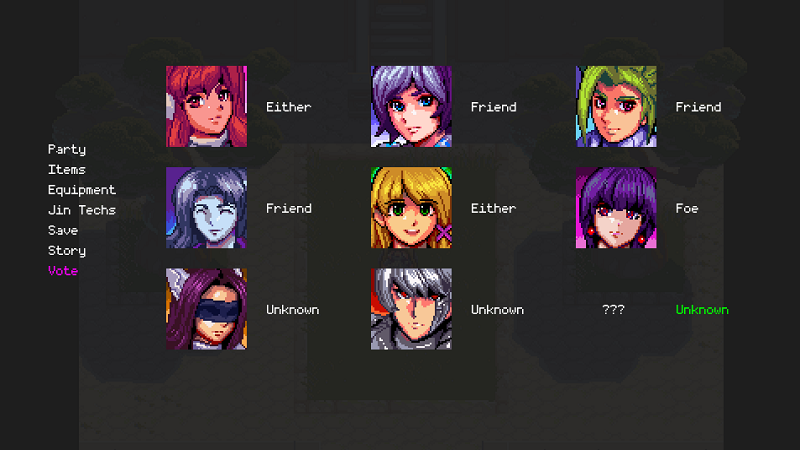
Jin has some great stuff going for it. The graphics are absolutely outstanding and it looks like a vintage SNES game across the board. Combat is turn based but happens in the field, so wherever you run into the enemy is where you fight, much like Secret of Mana and the sprites have a very Squaresoft look to them. Towns are complex and well-detailed, and enemies are varied with nice animation. On top of that, each area has excellent sound design as well, and the game really manages to match both music and sound effects to its disparate areas well.
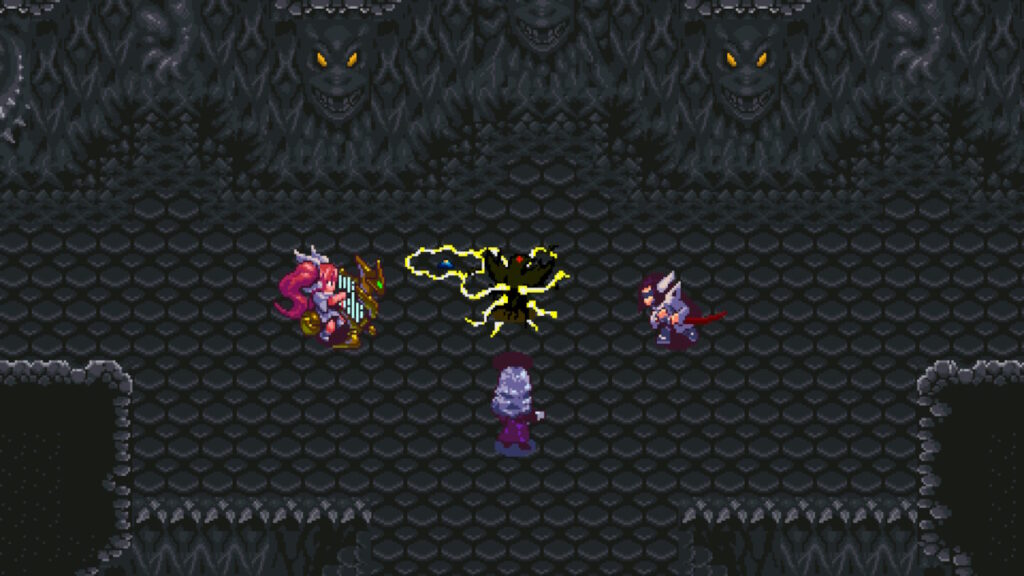
Unfortunately, looks and music are not the only thing that make a game. Especially with an RPG and specifically, a ‘social deduction’ RPG, plot and character development are key elements. Sadly, this is where Jin Conception almost immediately crumbles to pieces under the weight of its own concept. The beginning of the game seems like an ending, with three party members bandying quips around and fighting their way to a boss. If you’ve played an RPG at all, you know how this trope ends, with the party defeated. Then you wake up as Levi, a blue-haired protagonist of completely unknown origin with, well, no direction at all. No plot starter, no information, no idea how the menus work. Nothing. You leave your house and explore the closest down, which is pretty big. Then you walk out and try to fight things in the nearby forest, the most logical first place to start. You’re dead. One hit. Done. Start over from your last save!
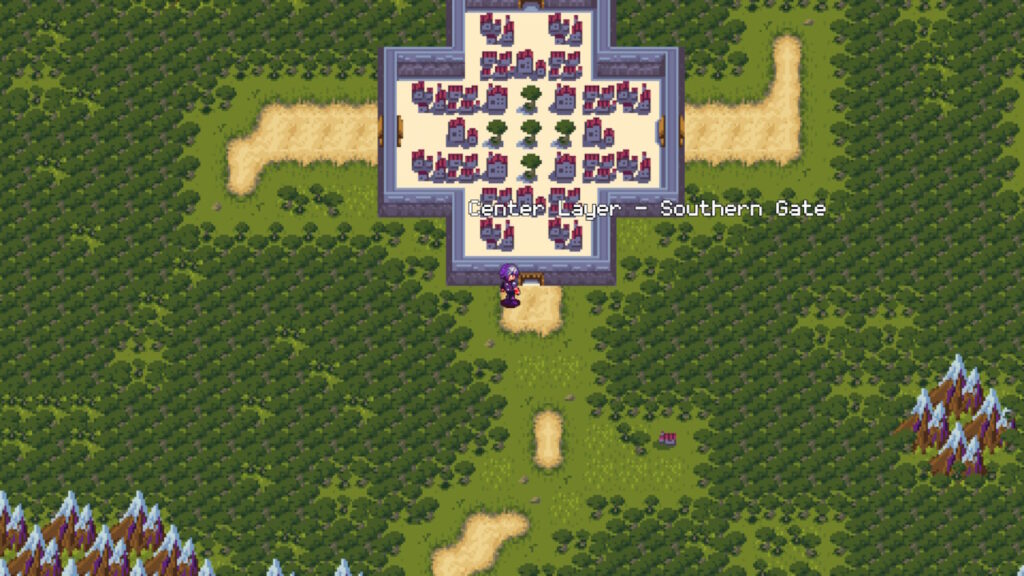
Wait, what? Yeah, that’s right. The first and most blatant issue with Jin Conception is that there’s absolutely no direction, no character development for your main character, and no idea what to do. The pause menu gives you rough indicators where to go, but there’s no plot in this social deduction game. Nothing. And talking to the townsfolk is useless since they just talk about things you haven’t got any experience with. Eventually you’ll wander south and find yourself in a fairy village, which is an experience. It looks a bit like a child designed it, with presents hanging from trees and brightly colored stuff festooned everywhere. Wander around enough and you’ll find a bottle of unattended honey in a house in the middle of the floor. If you pick it up (and there’s an option to leave it), a fairy girl with angel wings comes in and immediately fights you for stealing her honey. Beat her and she joins your party for no apparent reason, barely introduces herself, and then a completely unknown character shows up and tells you that you have some save someone from a trial you know nothing about. Yes, there are a few vague references to what is happening if you talk to every townsperson in both towns. But not enough to really have an idea.
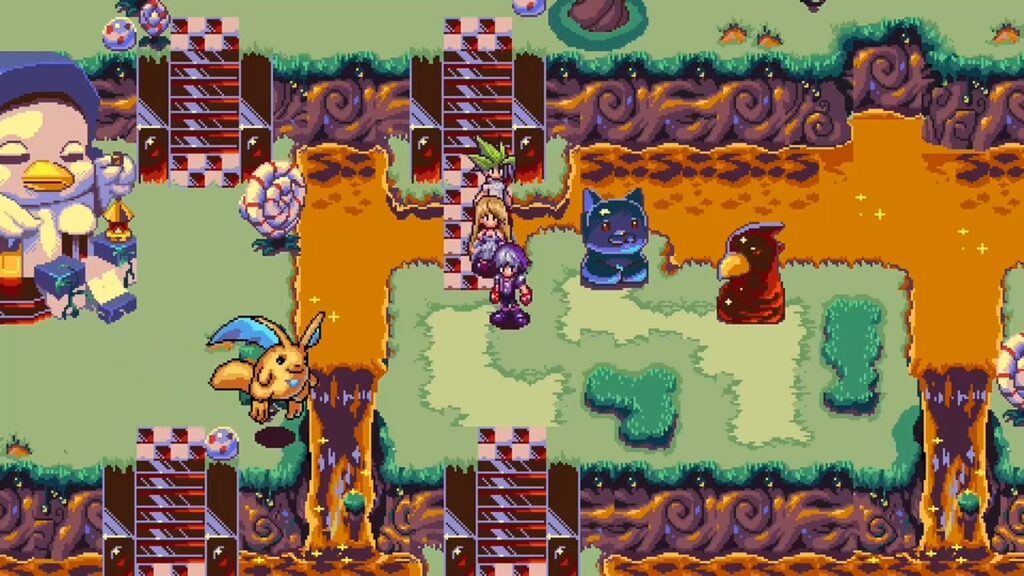
The story for Jin Conception is more like one of those brainstorming maps with bubbles and hastily scribbled notes that have been literally added as they were written. Sure, you have goals, but they’re never made clear and neither is where to go. Get your angel girl, wander off the wrong way, and you’re dead. Hope you saved! At this point in the story, you’ve probably got between 5 and 10 hours in, most of which has been spent trying to figure out what the heck is going on, when the social deduction is supposed to start, how the hell to equip your gear, and a host of other questions you really should have had to ask yet. Sadly, they won’t get answered anytime soon, and you won’t learn squat about Levi or Jen the angel girl. Surely it’ll all be worth it, right? It makes perfect sense that they’re suddenly adventuring together after Levi beat the crap out of Jen over some honey after all.
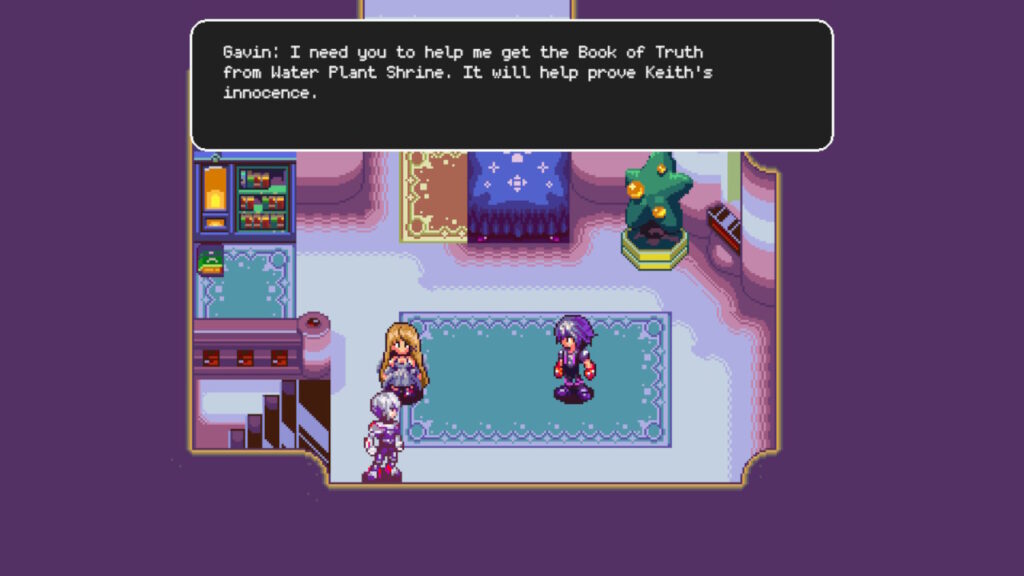
After a bunch more random meandering, you’ll probably manage to scrounge up enough money to upgrade weapons and armor at the stores in the two towns. You’ll need it because the enemies are absolutely vicious. You can use your Jin abilities on them with buffs and debuffs galore, but ultimately, you’ll mostly just want to beat them to death with a blunt instrument (which might be a metaphor). Combat is unforgiving, with enemies doing significant damage, healing Jin powers barely fixing the damage, and a limited supply of health items. Manage to force your way through the eastern forest and you’ll finally find yourself at a Water Shrine where some book needed to clear some guy in court is supposedly hidden. Once inside the shrine, enemies weirdly match your skill levels again and things are easy for no apparent reason. Make it all the way to the top and guess what? No book. Nothing. Apparently there’s some sort of plant monster there and you’d think that this would be an automatically triggered event, but nothing of the sort. Even after extended exploration, nada. This is kind of the entire main flaw with Jin Conception though, the complete lack of direction or visual cues to direct you in any meaningful way. A well-designed dungeon should make it impossible to miss the boss, make it all the way to the top and then find no event at the end. And it’s not like it’s not clear what to do…you have to get light to the second flower. But it’s very easy to fail to do so. This just shouldn’t happen.
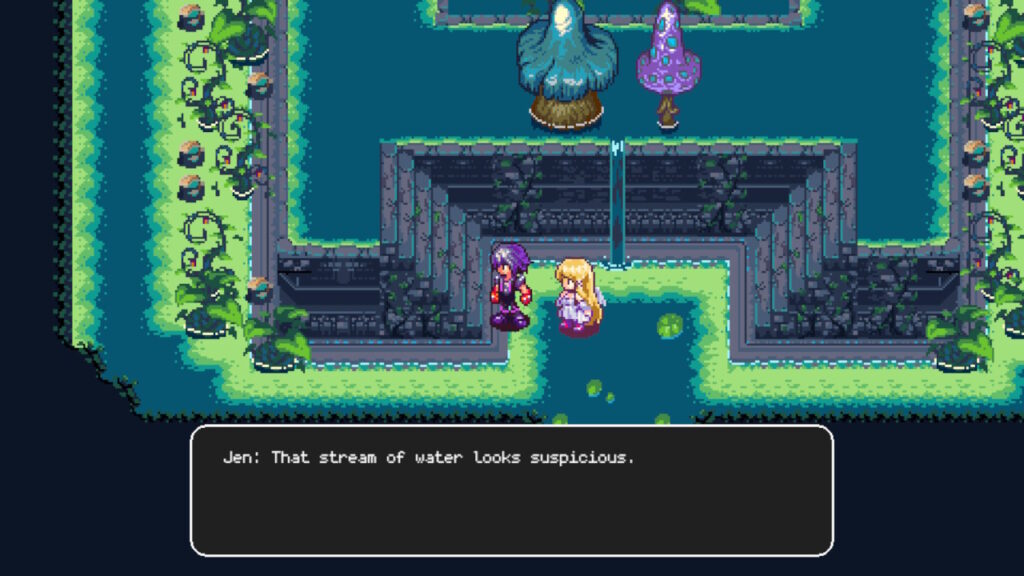
While you’re in the Shrine you see a grammatically offensive court battle that makes no sense take place, after which you can find a secret entrance to the court in a cave on the way back from the Water Shrine, wander into the courtroom area and out the other side and, oh crap. Dead again, surrounded by enemies for no reason in an area you’ve never seen before. That’s fun. Basically, the entirely of early gameplay in Jin Conception is like this. You’ll stumble across Trent eventually, as well as other characters and then sort of manage to toss in some guesses about who to trust but by that time, 90% of players will have long ago given up. The concept of Jin Conception is fantastic but the technical execution, script writing, and overall plot are a steaming pile.
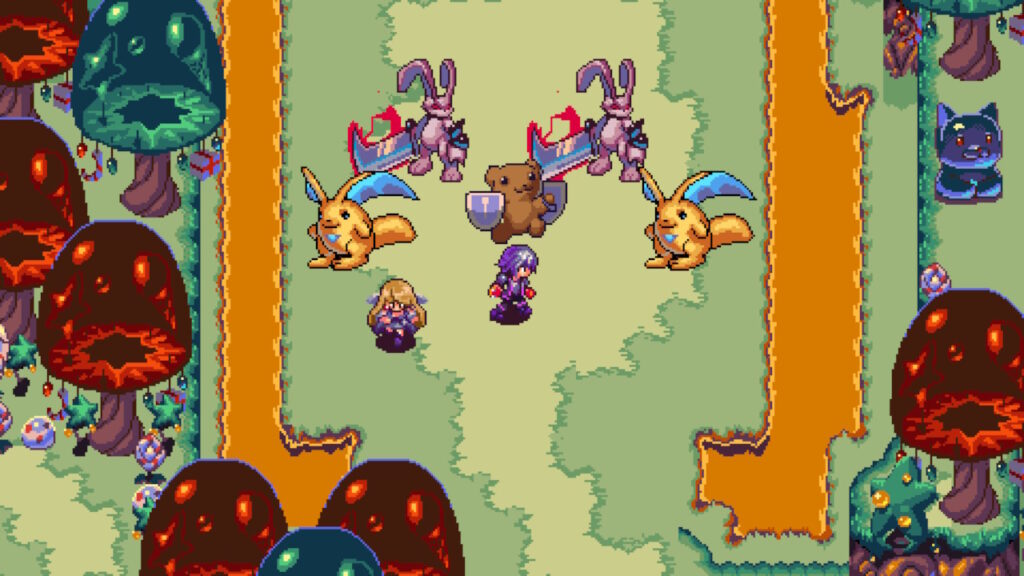
Here’s a rundown of some of the major issues on the Switch. The left stick doesn’t work to move around consistently so you have to use the D-pad (yes on every controller I tried, and I have 4). You can’t use your Jin abilities to heal outside of combat but food is prohibitively expensive. You can highlight the Jin abilities but they don’t do anything, unlike every other healer in every other RPG ever. You can’t equip weapons and armor from the equipment menu. Instead you can only equip them from the party menu, which is so non-intuitive that it might take you hours to figure out. Evern with massive stat-boosting weapons, you barely survive the onslaught of regular enemies and can just walk in anywhere. This leads to death after death after death serving no purpose whatsoever. Eventually (10 hours in) you’ll run into a character in the castle that tells you you can run away by hitting L and R together during combat, but there’s no run function, no walkthrough, and no explanation anywhere else. Oh, and the run option isn’t consistent so you’re slamming on L and R to get away from overpowered groups of enemies, bypassing the pathway blocks they made and making them essentially valueless. But wait, there’s more! One face button literally just moves text from the top of the screen to the bottom and back, something that serves no real purpose. The script is full of typos, unrealistic dialogue, bad grammar, and confusing expectations. The characters might as well be NPCs for all the development they get. And there’s literally zero direction on what to do. For a game that sells itself as a social deduction thriller RPG, there’s no social deduction for hours upon hours, no real plot, nothing thrilling, and the only thing that’s accurate is the RPG billing. And going by that, even the RPG elements are pretty weak, with limited explanation of what various options and abilities do. Those explanations? Only available from random NPCs.
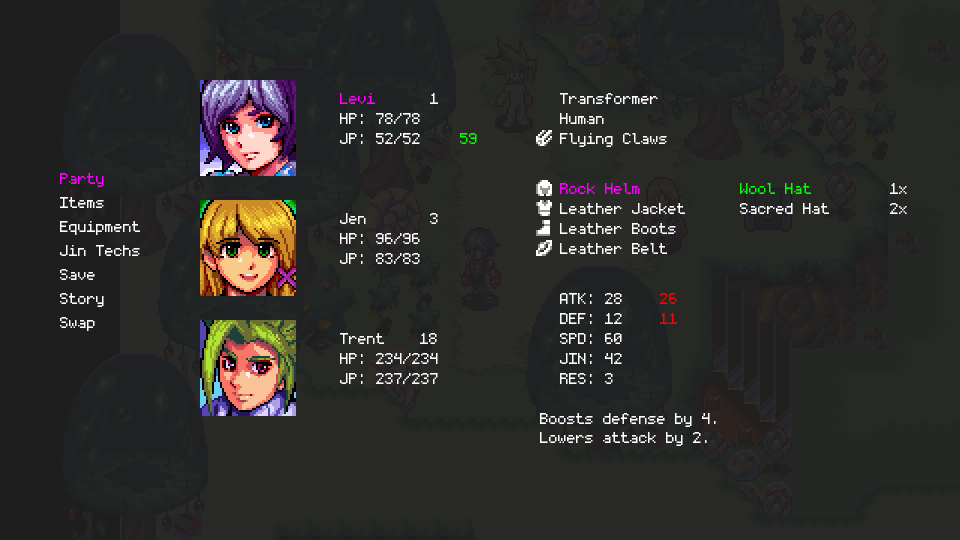
Here’s what’ll happen if you buy Jin Conception. You’ll complete the intro, expect the game to start in earnest once Levi appears, wander around for a few hours, and then give up because it’s not only not fun or interesting but it doesn’t even match its own selling points. In short, the vast majority of players will rage quit Jin Conception well before they get to anything resembling what they thought they bought and if they do manage to make it that far, they’ll be angry due to the absolute frustration of nearly every aspect of the game. Sure, combat is well-balanced if you manage to figure out how to utilize your entirely unexplained abilities. And that’s a big if. But if you can’t even give solid, believable characters and dialogue and there’s no immediate social deduction element either, what’s the point? If you’re willing to spend a massive time investment in a game that gives you nothing in return, that’s up to you. But there’s just no reason to.
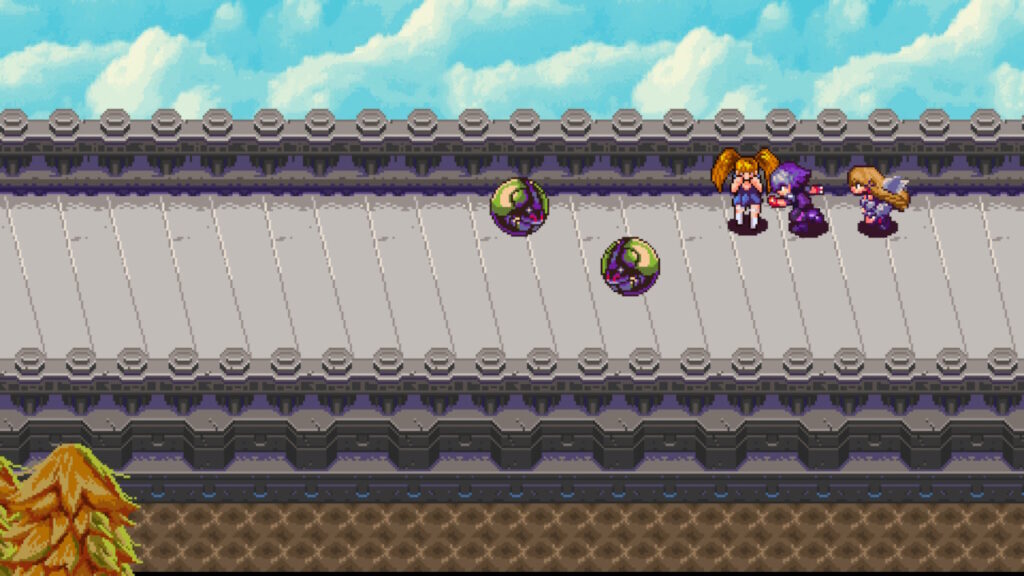
The simple fact of the matter is that Jin Conception is a bad game. Like pure shovelware bad. It’s a real shame because the core concepts are neat, the sprite design is outstanding, and the music isn’t half bad. This could have really been something if it had been through another year or two of beta testing and some customer panels. But unfortunately, it is very nearly unplayable, due in a large part to the writing and some severe technical and design flaws. And worst of all, it’s simply not fun. I just didn’t give a crap about any of the events or characters because I had no idea who they were, what purpose the story had, or what was even happening. No engagement means no one will want to play, and that’s probably the case with Jin Conception. If a great game is hiding in there somewhere, it’s hiding very deep . Even on sale, Jin Conception is a game better avoided unless significant game-changing revisions are made. Do yourself a favor and skip it entirely. There are way better indie games on the Switch than this.
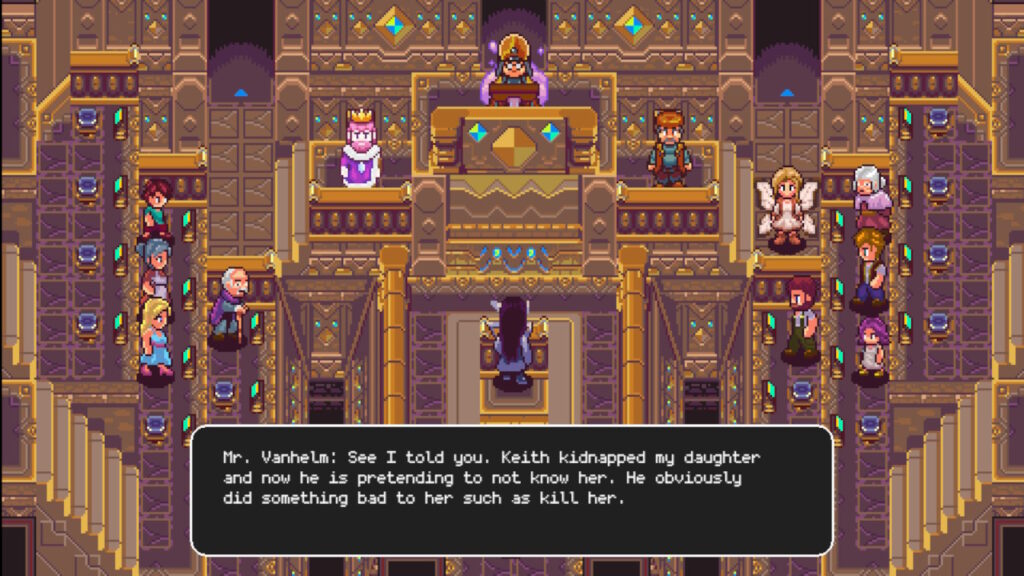
This review was based on a digital copy of Jin Conception provided by the publisher. It was played on a Nintendo Switch in both docked and undocked modes and was equally unenjoyable on both. Jin Conception is also available for PC on Steam.


Is the game so bad? I believed that graphics were great according to what I have seen, and what about the music?…considering that the game seems highly inspired by chrono trigger that features a mythical soundtrack, I was expecting something to match
I stand by my review. The graphics and music are quite good and I had no issue with them. Visually, the game is on a level with Chrono Trigger. The music isn’t Squaresoft level but it’s good. Combat is also well-designed as stated. However, the script, interfaces, and other issues mentioned make it frustrating and unenjoyable. Imagine Chrono Trigger if you had no idea where to go or what things do, could wander in and out of dungeons way too powerful for you, and the dialogue and story made no sense whatsoever, all while fighting the menus and controls. If you love figuring out literally everything to do in a game that has no solid plot and bad dialogue with grammar errors and typos, maybe you’ll like it…
[…] This is an interesting review of the game… […]